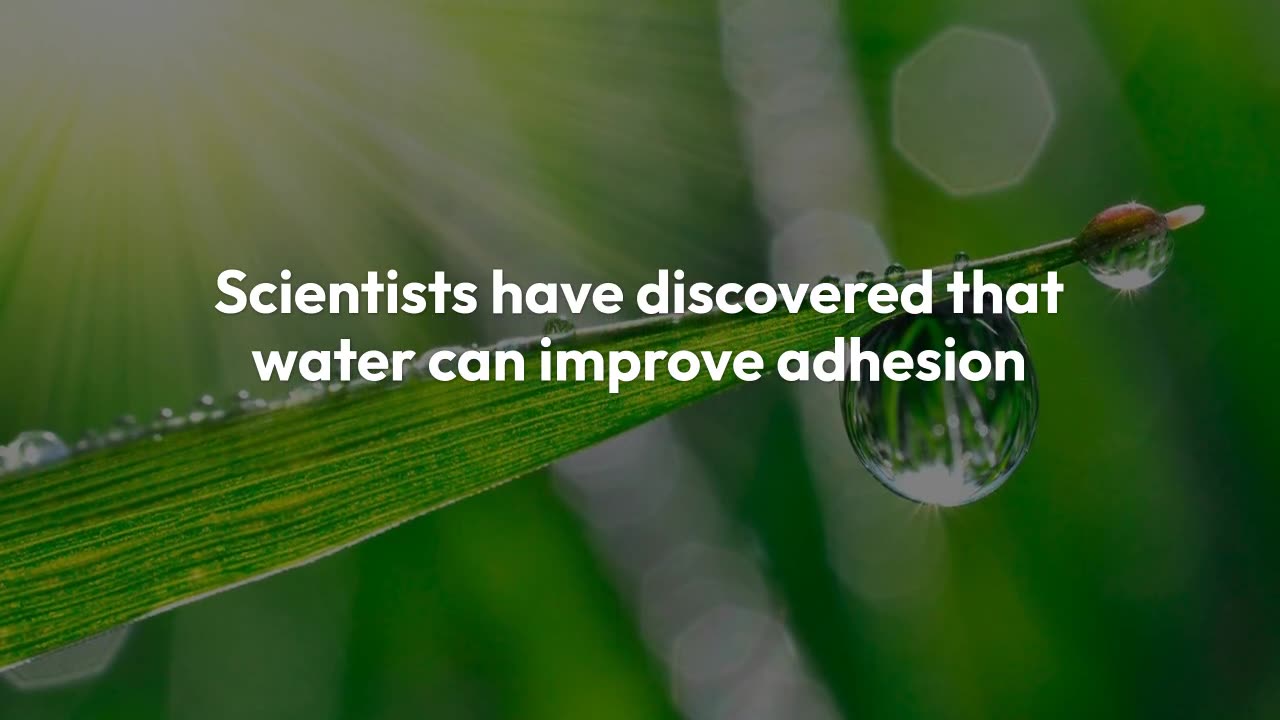Premium Only Content

New Research Challenges Conventional Wisdom on Wet Surface Adhesion
In a significant shift in understanding, scientists have found that water can improve adhesion under certain conditions, challenging the longstanding belief that water impedes this process. This discovery could lead to advances in medical adhesives and other applications.
Researchers from the University of Akron and the University of Pittsburgh have challenged long-standing beliefs with new findings that show water can actually aid in adhesion. Dr. Ali Dhinojwala, the W. Gerald Austen Endowed Chair and H.A. Morton Professor at The University of Akron’s School of Polymer Science and Polymer Engineering, led a team to this significant discovery. Their breakthrough, revealing that water can enhance adhesion under specific controlled conditions, was published in Science Advances.
The implications of this research are profound, particularly in biomedical applications such as bandages, health monitoring sensors for moist skin, and advanced adhesives that could replace sutures. The insights gained into leveraging surface roughness and material properties could revolutionize industries worth billions of dollars globally.
Driving on wet roads or applying adhesive tapes to damp skin are everyday challenges exacerbated by the difficulty of achieving strong adhesion on wet, rough surfaces. Traditionally, the presence of water has been seen as a hindrance, disrupting molecular bonds necessary for effective adhesion. Water tends to cling to surfaces and get trapped in surface roughness, further complicating the adhesion process.
-
 29:09
29:09
The White House
3 hours agoPresident Trump Participates in a Bilateral Meeting with the President of Ukraine
11.6K41 -
 1:47:30
1:47:30
Tucker Carlson
3 hours agoAuron MacIntyre: The American Empire Is Racing Towards Collapse. Here’s How to Prevent It.
42.4K53 -
 1:04:35
1:04:35
Mark Kaye
3 hours ago🔴 Trump and Zelenskyy Plan Oval Office Rematch!
7.12K2 -
 1:04:36
1:04:36
Sean Unpaved
2 hours agoBehind the Snap: Unpacking Giants' QB, Saints & Browns Battles, Caleb's Climb, & Cowboys' Plan B
17.2K -
 LIVE
LIVE
Barry Cunningham
6 hours agoBREAKING NEWS: PRESIDENT TRUMP MEETS WITH ZELENSKY AND OTHER WORLD LEADERS!
2,465 watching -
 LIVE
LIVE
StoneMountain64
2 hours agoBattlefield 6 Roundup, and NEW MAP for Battlefield 2042 on the Road to BF6
71 watching -
 LIVE
LIVE
Nerdrotic
5 hours ago $2.00 earnedSuperman GUNNED DOWN | Marvel Phase SUX - Nerdrotic Birthday Nooner 508
617 watching -
 18:52
18:52
Neil McCoy-Ward
2 hours agoBrace Yourself… They’re Coming for Everything You’ve Got!
6.88K8 -
 LIVE
LIVE
Viss
3 hours ago🔴LIVE - Learn To Dominate Battle Royale with Tactics and Strategy! - PUBG
94 watching -
 1:01:55
1:01:55
Timcast
3 hours agoGazans BLOCKED From Entering US, Trump CUTS Deportation Backlog For First Time In 20 YEARS
134K83